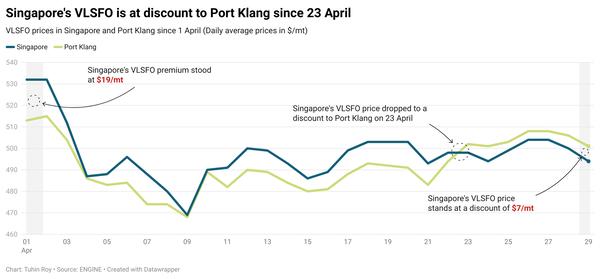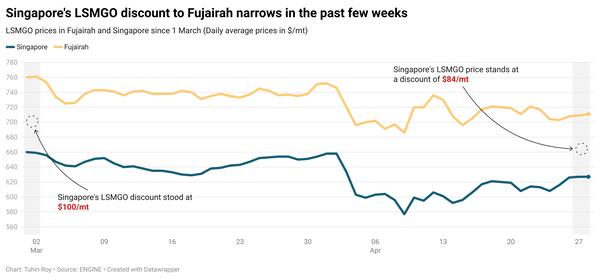Vitol Bunkers launches co-processed VLSFO for bunkering
Bunker supplier Vitol Bunkers has introduced a co-processed VLSFO that meets the 2% greenhouse gas (GHG) intensity reduction requirement set by FuelEU Maritime, starting this year.
 IMAGE: Harbour craft in front of an oil tanker in Fujairah. Port of Fujairah
IMAGE: Harbour craft in front of an oil tanker in Fujairah. Port of Fujairah
Co-processed VLSFO is produced by refining fossil and renewable feedstocks together to reduce carbon emissions. Unlike traditional biofuel blends—which are created by mixing finished biofuels with fossil fuels after production—co-processed VLSFO integrates the renewable component at the molecular level during refining.
This results in a fuel with “the same chemical composition and quality as conventional fuel,” which means it doesn’t require extra permissions or special clauses in charter party agreements, according to Vitol Bunkers.
The process is certified under the International Sustainability & Carbon Certification (ISCC-EU) scheme.
Vitol Bunkers claims the carbon intensity of the co-processed VLSFO matches that of used cooking oil methyl ester (UCOME), achieving a greenhouse gas intensity (GHGi) reduction of 70% or more, compared to fossil alternatives.
The fuel is being produced at Vitol’s 100,000 b/d refinery in Fujairah.
Their oil tanker, Elandra Falcon, was the first vessel to bunker the new fuel, which will be made available at various locations “in due course.”
By Tuhin Roy
Please get in touch with comments or additional info to news@engine.online

Contact our Experts
With 50+ traders in 12 offices around the world, our team is available 24/7 to support you in your energy procurement needs.




